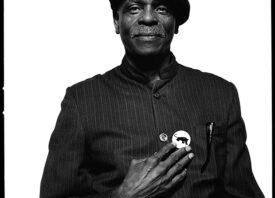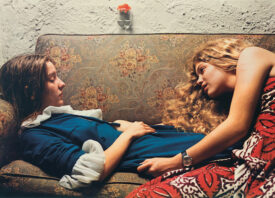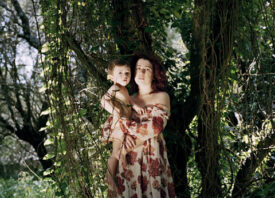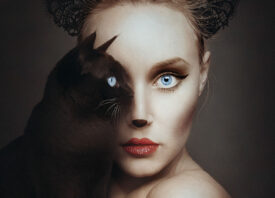Search this site
Black Women Celebrated In Portraits Inspired by Chicago’s South Side


Akilah Townsend, who grew up in Chicago’s South Side, remembers taking pictures with her friends in early the 2000s-2010s, “When I think of Chicago culture, it’s something that I can feel better than I can describe,” she admits. “But it was going to the Rink with my best Rocawear outfit, color coordinated to the nines. We would be decked out in Girbaud straps, academics, Fubu; baby blues, whites, oranges.”
It was that period in her life that inspired her passion for color. Also a time that she started to uncover a lifelong mission.
“In my personal work, it is important for me to make imagery of those who are most devalued, misunderstood, and unprotected: Black women,” she tells me. When collaborating with clients, too, her work is motivated by her desire to uplift and empower her sitters.
Chicago continues to be a constant muse. “Another way that I think my city has informed who I am as an artist is the nature of my resilience and creativity,” Townsend reflects. “The South Side is a very creative place with ingenuitive people. Facing a lack of options, in many different ways, we build the mindset of ‘Get it how you can/get it how you live.’ I very much have adopted this mindset and have a resilient, flexible nature.”

In 2020, in the aftermath of the murders of George Floyd and Breonna Taylor, she made Every Star, a portrait of a mouth and gold teeth. A few months earlier, she sat in front of the camera herself, her face bathed in a glowing spotlight.

“Making self-portraits is tiring, but I try to do one once a year,” Townsend reflects. “This one was 2020, two and a half years ago. I captioned it ‘Protect Black Women’ because we are continuously left unprotected, by systems and people meant to protect us. We face systemic racism and misogynoir and are at risk of police violence. This was just after the murder of Breonna Taylor.”
Late last year, Townsend worked on a story for The Wall Street Journal about the murders of Black women and girls. Murders of Black women rose sharply during the pandemic, but the percentage of those cases that were solved by police fell—more so than was observed among other demographics.
Still, even in the face of pain and injustice, moments of joy are woven like gold thread throughout Townsend’s portraiture. In a recent collaboration, the artist harkens back to the early 2000s, when she and her friends came into their own in Chicago.
Part of a campaign for a clothing capsule by the brand Chicago Girls Do It Better, the series is a celebration of sisterhood. “It’s that type of love that watches over you, picks you up when you’re down, and fills in the gaps wherever you might need, even if you don’t know it,” the artist writes.

In many ways, her steadfast commitment to photographing and championing Black women is an extension of that same type of love. She tells me, “My aim with my portraiture work is to evoke a sense of familial empathy and also, simply awareness; that we’re here, we are beautiful and meant to be protected, the same as anyone else.”
Akilah Townsend is a member of Black Women Photographers, a global community bringing together Black women and non-binary photographers.






All images © Akilah Townsend (@killls)



